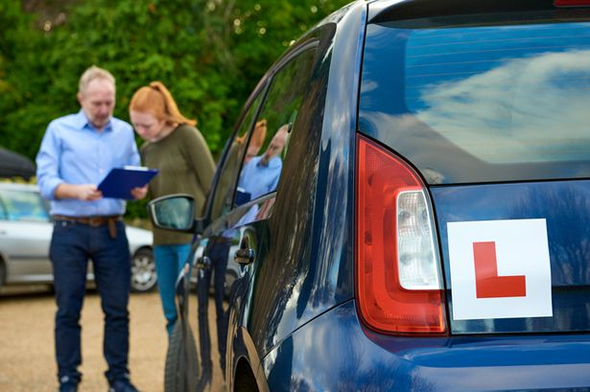
The average price for Driving Lessons is £25 to £30 per hour according to the RAC.
Let’s look at what your driving lesson fee actually pays for:
1. A Driver and Vehicle Standards Agency Licensed Instructor to teach you.

Driving Instructors will normally undertake a training course which entails an advanced theory test, advanced driving test and a test of instructional ability. The whole process can take up to 2 years to complete.
Driving Instructors are know as a Potential Driving Instructors (PDI’s) until graduating to Approved Driving Instructor (ADI) status when fully qualified. Candidates normally invest between £3000 and £5000 for a full professional instructor training course.
When a driving lesson appointment is made you are booking the driving instructor’s time in their professional capacity.
2. A Modern Dual Controlled Vehicle to learn to drive in.

A Driving Instructor will deliver his or her driving lesson schedule with the use of a modern dual controlled training vehicle.
This will normally entail the instructor renting a dual controlled vehicle (costs are around £300 to £400 per month for rental fees) or purchasing their own vehicle (around £250 to £350 per month in finance fees) and adding on a set of dual controls which cost around £340 to £500 to install.
3. Insurance to allow you to drive.

A learner driver needs insurance to drive any motor vehicle on a public road. Driving Instructor policies can cost from around £600 per year, up to and over £3000 per year, depending upon each instructor’s individual circumstances.
4. Fuel Costs to drive a vehicle for the duration of your driving lesson.

A regular driving lesson is normally around 2 hours in duration. The cost per hour for fuel is around £2 to £2.50 per hour or £4 to £5 for a 2 hour driving lesson.
5. Instructor Overheads.

A driving instructor car which is on the road all day, for 5 or 6 days every week, covers a lot of mileage. A Driving Instructor has to budget for car maintenance e.g. tyres / brakes / servicing / any non warranty repairs. If a Driving Instructor misses work due to illness then they lose any income for the time that they are absent from work.
Driving Instructors will normally put to one side 20% of their earnings for tax payment purposes.
For more information on any of the above or to discuss any aspect of driver tuition, contact a member of the team at Manchester Driver Training today.







